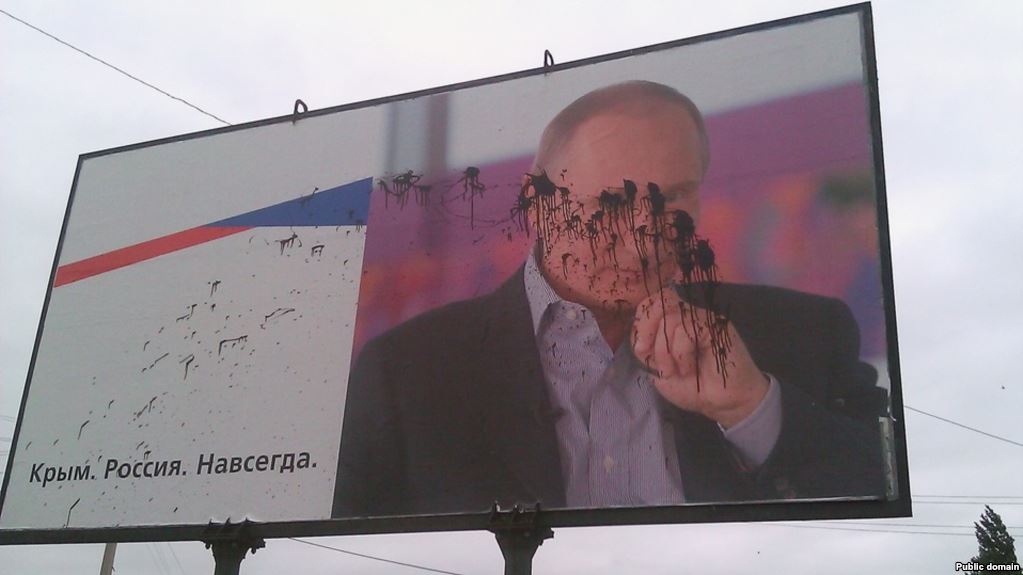One impression from the lengthy and stylistically incoherent text is that the author is deeply involved with the theme, so quite possibly one key addressee of the (surely ghostwritten) argument is Putin himself (Ezhednevny Zhurnal, July 14). Ukraine has been a key part of his big project for making Russia the leader of Eurasian integration and restoring its “greatness,” and the clear failure of the costly effort to pull the country into Russia’s “sphere of influence” needs to be explained away (Snob.ru, July 13). Incapable of admitting any possible mistakes, Putin cannot accept the plain fact that Ukraine’s strong drive Westward is a result of his policy (Moscow Echo, July 13). Putin is certainly not modeling himself after Soviet leader Leonid Brezhnev, whose “memoirs” were widely ridiculed in the autumnal years of the Soviet Union; rather, he apparently seeks to emulate Josef Stalin, whose publications on matters as diverse as philology or genetics were consistently received as indisputable truth (Svoboda.org, July 13). Stalin is, indeed, perceived by a large majority of today’s Russians as a “great leader,” but the problem for the Kremlin is that only 16 percent of Ukrainians share this view (Levada.ru, June 23).
Addressing the domestic audience, Putin seeks to establish that the officially denied but implicitly acknowledged Russian intervention in eastern Ukraine is justified by the historic blunder of transferring several territories to the “artificially constructed” Ukrainian republic in the course of revolutionary state-building in the 1920s (Forbes.ru, July 13). The 2014 annexation of Crimea continues to be broadly supported in Russian society, but the protracted, costly occupation of parts of the Donetsk and Luhansk regions is far less popular—thus, the authorities deem it necessary to make Putin’s text a compulsory read in the Russian army (RBC, July 15). That essay owes much to the informational ground built up for years by the relentless Russian propaganda campaign, which portrays Ukraine as a failed state and amplifies every political scandal and economic setback in the “brotherly” country so that Russia’s own problems pale in comparison (Izvestia, July 16). This distortion of reality is accompanied by expanding repressions against independent Russian media since the latter dares to persist in focusing on Russia’s problems (Znak.com, July 15). The Kremlin is also increasingly worried by the widespread resistance in Russian society to anti-pandemic measures, including COVID-19 vaccinations. The defamation of Ukraine is, thus, seen as a key means of restoring control over the domestic agenda (Moscow Echo, July 15).
Trending Now
The failure to connect with the core domestic audience is unsurprising, given Putin’s self-isolation and informational bubble (see EDM, February 4, May 26); but in his history essay, the Russian president also fruitlessly tries to address Ukrainian public opinion. Seeking to juxtapose the Ukrainian people with the elites, he provocatively attacks Ukraine’s leadership. President Volodymyr Zelenskyy, however, opted not to reciprocate and even sardonically complimented Putin for publishing a version of his text in Ukrainian (Novaya Gazeta, July 13). Moscow-based pundits rushed to argue that the key point of Putin’s narrative is to restore cooperative ties between two uniquely close states. However, denying Ukraine any national identity and portraying it as a construct of foreign intrigues is hardly a practical means to that presumed end (Kommersant, July 14). The claim that the aspirations of millions of Ukrainians for closer ties with Russia are severely suppressed can only puzzle the ever-argumentative Ukrainian polity. On the other hand, the threat contained in Putin’s pledge not to tolerate the exploitation of “our historical territories” cannot be ignored (Rosbalt, July 13).
By threatening Ukraine and rejecting the legitimacy of its borders, Putin seeks to deter its Western supporters from building up any military infrastructure or capacity on that country’s territory. And in the opinion of some Russian experts, this boils down to an ultimatum to the North Atlantic Treaty Organization (NATO) not to proceed with issuing Kyiv a Membership Action Plan (Nezavisimaya Gazeta, July 15). The big lie of Russian propaganda about Western instigation and manipulation of the “coup” in Kyiv in 2014, which resulted in the establishment of “external management” over Ukraine’s politics and economy, can hardly find new believers after Putin’s recycling. However, he uses it as a means of dissuading the conflict-averse Europeans from engaging with Ukrainian troubles (Republic.ru, July 14). Ukrainian politics are, indeed, volatile; and the recent ousting of the influential long-time minister of interior, Arsen Avakov, did not refute that characterization. Still, Zelenskyy delivers firmer and smarter leadership than the amateurish wobbling the Kremlin had expected (Carnegie.ru, July 15). The Ukrainian leader builds an increasingly convincing case about the need to discard the patently impracticable Minsk ceasefire agreements. Whereas, Putin’s claim that Kyiv “does not need Donbas” further pressures France and Germany—which have clung to the notion that the Minsk accords remain a useful conflict-resolution mechanism—to re-evaluate Moscow’s true intentions in this contestation (Moscow Echo, July 16).
Read More:
- Putin’s new article – ‘ideological justification for a future war,’ Pastukhov says
- Why the West should be paying close attention to Putin’s article
- Vitaly Portnikov: For Putin, Ukraine does not and will never exist
- Putin’s penchant for drawing and crossing ‘red lines’
- Putin offering Ukraine same deal Stalin offered West Germany in 1952, Piontkovsky says
- Putin believes only annexing Ukraine will allow Russia to be a superpower without harm to its ethnic Russian core, Eidman says
- Biden-Putin summit sparks political confrontations inside Ukraine
- A brief dictionary of Putin newspeak
- The limits of compromise for Biden & Putin: Ukrainians’ views of the future of occupied Crimea and Donbas

